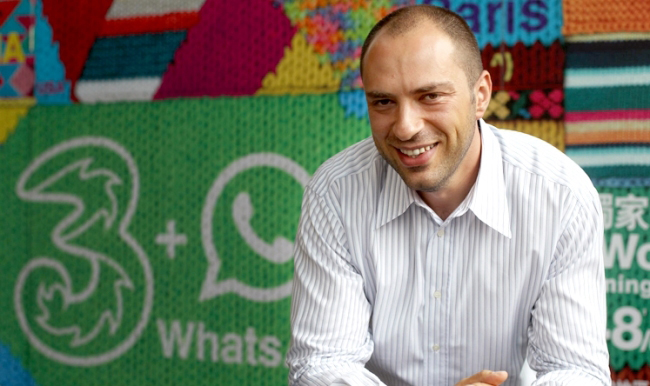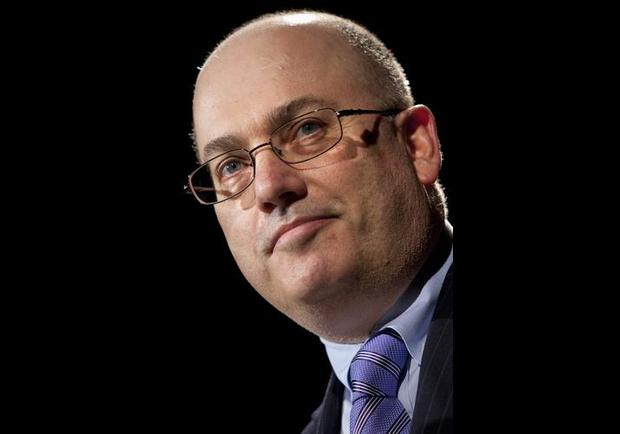
Economic outcomes aren’t produced in a vacuum. They reflect the politics, culture and values of the people behind them. Today those forces aren’t saying good things about us as a society. Think about it: since when is a failed Silicon Valley executive worth nearly 2,000 times as much as a teacher?
Yet, sadly, that’s the kind of economy we live in. The money certain types of people command in the marketplace tells us something about our society—and nowadays, it’s not telling us much that’s very good.
Here are six examples of individual incomes which demonstrate that our priorities have gone completely out of whack.
1. Number Two at Yahoo! gets $109 million for 15 months of failure.
Okay, run this by me one more time: A human resources expert told Forbes magazine that nine-figure severance packages for Number Twos are “as scarce as golden hen’s teeth.” But Yahoo! C.E.O. Marissa Mayer still offered a very sweet one to her short-lived second-in-command, Henrique De Castro. It’s worth an estimated $64.5 million, according to published reports, which means that De Castro’s unsuccessful 15-month tenure will net him an estimated $109 million. De Castro’s golden parachute is “one of the biggest ever,” according to Forbes’s Jeff Bercovici.
De Castro’s severance package, which can be seen as a guarantee against personal failure, would have been considered large even for the Number One at a large corporation. It’s especially generous given the fact that the New York Times reports that “Mr. de Castro was particularly ill-suited for the job, according to ad-industry executives, analysts and people who worked with him at Google and Yahoo.”
It paid off extremely well for De Castro, whose parachute unfurled less than 15 months after he was hired. As Bercovici notes, De Castro was paid $244,000 each day of his Yahoo! employment, including weekends and his final months, during which he was reportedly rarely on the premises.
The average teacher’s salary in the United States was $56,383 last year. De Castro’s severance package was more than 1,933 times that amount. He was paid more to go away than America’s teachers are paid to show up—and to grade papers on their weekends, too.
2. Former Google C.E.O. is reportedly worth $8 billion (and change).
How did executive worth get so inflated in Silicon Valley? Consider this: de Castro’s (and Mayer’s) former boss Eric Schmidt is reportedly worth $8 billion after serving as Google’s C.E.O. for a number of years. Schmidt famously earned a $1 salary and negligible bonuses while he was C.E.O., but clearly he was being compensated more than fairly.
In his current, more nebulous position as “executive chairman,” Schmidt has twice been awarded $100 million in stock. Last month he was also given $6 million in cash.
Schmidt’s a bright guy. But $8 billion and change in net worth? Why, exactly? Schmidt didn’t invent Google. Sergey Brin and Larry Page did. He ran it reasonably well, and deserved to make money for that. But $8 billion? For 10 years’ work?
On the “teacher scale” (and with a little estimating for inflation), that’s more than 15,000 times what the average teacher would have made over the same 10-year period.
3. $19 billion to buy WhatsApp.
WhatsApp duplicates what instant messaging does, but independently of phone carriers. It’s a good idea, but it’s not revolutionary. While it was well-implemented, by all accounts, its design and execution didn’t require any technical breakthroughs.
Good, competent engineers and managers deserve a good payday for the work. And the WhatsApp team deserves some extra payback, karmic as well as financial, for refusing to accept ads and taking a firmly pro-privacy and anti-Big Data stance. “People need to differentiate us from companies like Yahoo! and Facebook that collect your data and have it sitting on their servers,” said C.E.O. Jan Koum. “We want to know as little about our users as possible.” (They tell us that won’t change—at least for now.)
But the 55-person WhatsApp team received a lot more than a bright payday and a promising rebirth. At least a dozen business sites have described this deal as “jaw-dropping.” Facebook paid a record-shattering $19 billion for the company, despite the fact that the app is unoriginal in design and would be pretty easy to replicate. What wouldn’t be easy to replicate is the user base WhatsApp has developed: 450 million people are paying 99 cents per year to use the service.
In other words: The biggest chunk of that payday went, not for the app or the team, but for the users—people like you and me. We could discuss the wisdom and fairness of that purchase all day long.
But there’s another reason this staggering sum was paid out: Facebook, like much of the Silicon Valley, has too much money for its own good. Why else would it pay roughly 40 times accompanies annual earnings in order to acquire it? Bill Gates, who has many reasons to remain on friendly terms with Zuckerberg, struggled to be diplomatic. ”I hope it works out for him,” said Gates. “Not everybody would’ve done it, I’ll say that for sure.”
You could have paid nearly half a million teachers for a year with this money. That would also provide an enormous stimulus to our struggling economy. Instead it’s going to a company with 55 engineers. Something is seriously wrong somewhere.
4. Zuckerberg.
That name says it all. Why wouldn’t Mark Zuckerberg pay $19 billion for WhatsApp? He probably thinks he’s worth $28.5 billion, which is what Forbes estimates is his net worth. Sure, he’s an aggressive and smart businessman. But he didn’t invent the Facebook concept, and he had no idea what this website for new college students would eventually become.
If you think Mark Zuckerberg is worth more than 523,207 teachers—who, at an average class size of 20, could teach 10 ½ million kids for a year—then your priorities are out of whack too.
5. Hedge funders.
Hedge funders bet against companies’ success at least as much as they bet for them. Their profession has contributed to the explosive growth of non-productive financial transactions as a percentage of corporate profits, a trend that has robbed the economy of jobs and growth.
And they make a lot of money for it. (Details here.) Hedge funder Steve Cohen made $2.3 billion last year. Since that’s just one year’s income, it didn’t hurt him too much when he paid $1.8 billion to settle criminal insider trading charges. In fact, he came out half a billion ahead last year.
David Tepper made $3.5 billion last year. That puts him ahead of Zuckerberg on an annualized basis. John Paulson made nearly $2 billion last year. James Simon, although officially retired, made $1.1 billion. Ray Dalio’s Bridgewater Associates underperformed compared to the industry, but he made nearly $1 billion anyway.
The top five hedge funders made a total of $13.4 billion among them, or nearly a quarter million teacher-years, in a single year.
6. Quinn Gillespie, lobbyists.
Our unjust and inequitable economic system is only made possible because lobbyists have so much influence in Washington. Politicians and political operatives know they can look forward to a rewarding afterlife in the lobbying universe if they play their cards right—and most of them do.
While it’s not the largest lobbying firm, Quinn Gillespie’s origins reflect the bipartisan nature of the lobbying machine. It almost sounds like a sitcom: one’s a Republican, one’s a Democrat, and together they’ll make millions!
Jack Quinn was a Clinton insider. Ed Gillespie is a former chairman of the Republican national committee, Bush insider, and cofounded Crossroads GPS with Karl Rove. (Gillespie is on hiatus to run for the U.S. Senate in Virginia.) Their firm made a total of $160 million in 2012, of which $4,030,000 was reported as official lobbying.
Their income is small potatoes compared to the massive sums the billionaires on this list have been pulling down. But they are making millions off a profession that was once described as “public service.” That’s disgraceful.
$4.030,000 for lobbying comes out to 71 ½ teachers. The city of Washington DC could sure use those teachers. What’s more, those teachers would be doing social good, not social harm.
Lobbyists may not be billionaires, but they make our billionaire-generating and billionaire-coddling system possible. And they do it at the expense of our social values. They may not be the unproductive billionaires who are draining the lifeblood from our economy, but lobbyists like Quinn and Gillespie are the wind beneath the billionaires’ wings.
3 WAYS TO SHOW YOUR SUPPORT
- Log in to post comments

















